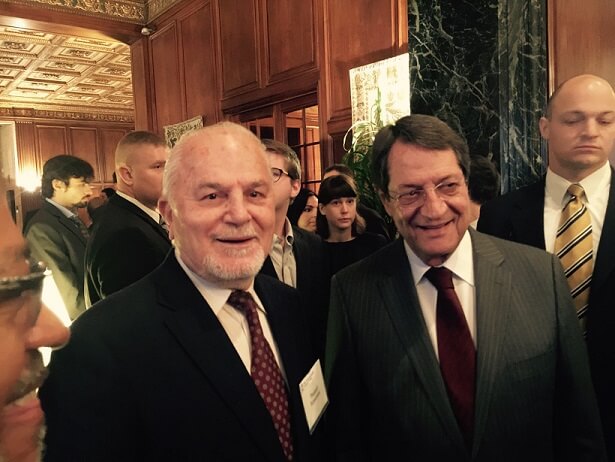
Stories Talk | Presentation Skills and Effective Storytelling
Stories Talk | Presentation Skills and Effective Storytelling
By Mia Kollia
Translated by Alexandros Theodoropoulos
He was born in 1937 in one of the largest villages of Grevena, Zaka. His village was severely affected by the Nazi occupation and the Greek civil war which was also the reason that forced him to leave the country. In the late 1940s, his parents sent him to Albania with 200 other children, because the situation in their country at that time was threatening their lives.
He stayed there for a month. He went to school for the first time in Czechoslovakia at the age of eleven, living in an orphanage. He had to study a lot and try hard to get to the point of keeping up with the rest of the kids at his age. He did it again.
When you hear him speak, you see a sweet, meek, rather melancholic man who narrates his life and refers to science as if everything is simple and not particularly important. Only the stars up there can encourage him. This deep, effortless modesty makes him even more magnificent.
In 1961, Thanasis Oikonomou graduated from the Department of Nuclear Physics of Charles University in Prague and in 1964 he settled in America, looking for work.
"I can say that I was lucky, because at that time NASA had just selected a team at the University of Chicago to build instruments for the exploration of the Moon and needed someone with my knowledge in nuclear physics. That's how I became the new member of this group".
Since then he has been exploring space. Thanasis Oikonomou has participated in many space missions of NASA and the European Space Agency of Russia and other nations. But the first time they sent spacecraft to the Moon was really an unforgettable mission - spacecraft that landed in preparation for the Apollo program, which took the first astronauts to the surface of the Moon.
"Astrophysics has been trying for years to map and comprehend the universe, which is not easy. We know it all started with the Big Bang, 13.7 billion years ago, that our solar system was created 4.5 billion years ago, and that there are other stars that are newer or older. Nevertheless, we have been dealing with Space for 60 years. We are the only ones in our solar system, but we are also looking for traces of life on other planets; most likely to exist on Mars, because that’s a planet very similar to the Earth and, above all, with water. Unlike today, where conditions are different, in the past they were about the same as those on Earth and we hoped that life would have begun to evolve there as well, leaving traces on the surface."

Thanasis Oikonomou has been making tools for the interplanetary spacecraft since the 1960s and his name is associated with the interplanetary missions: Mars Exploration Rovers and Cassini (on Saturn) and Rosetta mission on Comet 67P / Churyumov-Gerasimenko.
He also created the Alpha Proton, an X-ray spectrometer, which performed the first chemical analysis of Mars rocks with Mars Pathfinder in 1997. "We, as scientists, search, research, find out, but every one of us believes in something. This something is completely different for each and every one of us."
In 2005, when the robotic rover "Spirit” was on Mars, the great astrophysicist suggested to NASA to give some areas of the Red Planet some names inspired by the Greek resistance against the Nazi occupation and his associates accepted the proposal. So today we have "Agrafa", “Kalampaka", "Xanthi", "Tempi", "Lassithi" and "Thessaloniki".
From an early age, Thanasis Oikonomou wandered the sky for hours and as enchanted by its sight, he always wanted to know more about it. "I know that looking at the sky enchants the souls of children and that is why we are trying to build an observatory in Greece, where children will be able to observe the planets from school, as well as the stars and the sky in general. This will increase their knowledge, in order to make them active members of the next generation".
#HisStory